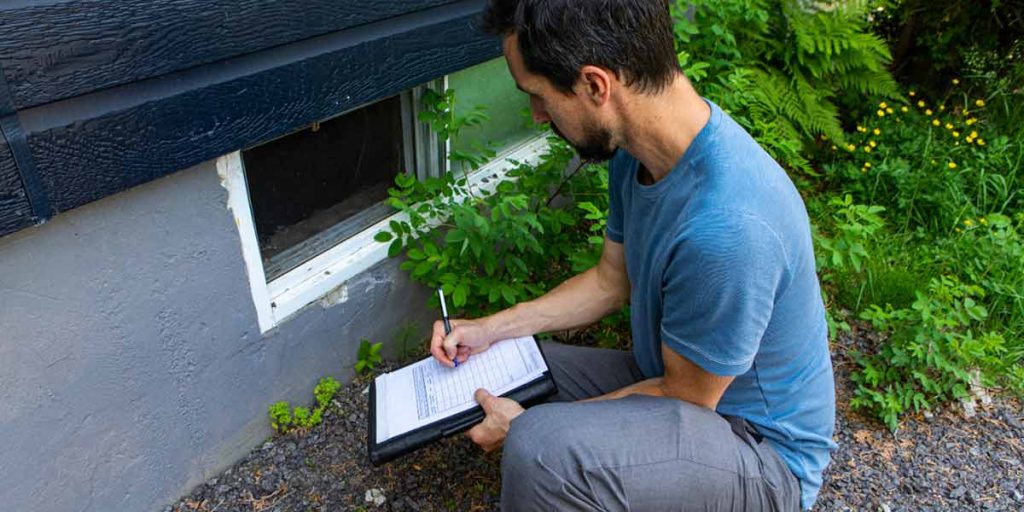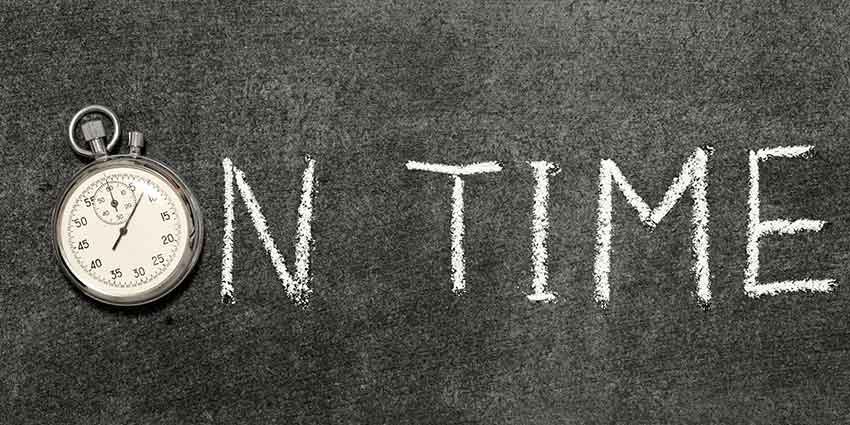In the bustling real estate market of Florida, home inspectors play a crucial role. They ensure that properties are safe, sound, and up to code.
But what does it mean to be a licensed home inspector in Florida?
It means you’ve met the state’s stringent requirements. You’ve demonstrated your knowledge and skills in the field.
Obtaining a home inspector license in Florida can open a world of opportunities. It can lead to increased income, job security, and professional growth.
In this article, we’ll delve into the benefits of being a licensed home inspector. We’ll also explore the role of educational institutions like LEAP Academy in this process.
Join us as we navigate the path to becoming a licensed home inspector in the Sunshine State.
Understanding the Home Inspection Industry in Florida
The home inspection industry is integral to Florida’s real estate market. With its rapid growth, there’s a high demand for qualified inspectors.
Home inspectors evaluate the condition of residential properties. They provide detailed reports on their findings to buyers or sellers. These inspections help ensure transparency and confidence in real estate transactions.
In Florida, real estate transactions can be complex because of varied property types and climatic factors. Home inspectors must be well-versed in local building codes and conditions.
Here are key factors shaping the industry in Florida:
- Diverse property types, including coastal homes vulnerable to storms
- Strict building codes and regulations
- High demand for energy efficiency assessments
- Emphasis on safety standards and defect identification
The demand for skilled home inspectors continues to rise. This growth offers potential for career stability and advancement in the field. The industry’s evolution also highlights the importance of ongoing education to stay current with standards and technology.
View this post on Instagram
Legal Requirements for a Home Inspector License in Florida
Florida is one of the few states with specific regulations for home inspectors. Understanding these requirements is crucial for aspiring professionals.
First, you must be at least 18 years old to begin the licensing process. This is one of the basic prerequisites set by the state.
Education plays a pivotal role in the licensing process. Florida mandates a minimum of 120 hours of approved training courses. These courses cover essential inspection techniques and state-specific standards.
Apart from education, passing a state-approved exam is mandatory. This ensures that applicants have grasped the necessary skills and knowledge.
Here is a summary of the main requirements:
- Age: 18 years or older
- Education: At least 120 hours of training
- Exam: Pass a state-approved test
- Background Check: Clear criminal history
- Application Fee: Pay the required fee
Once these steps are completed, you must apply through the Florida Department of Business and Professional Regulation. Obtaining a license ensures compliance with legal standards and enhances professional credibility. Embracing these legal standards is a fundamental step toward a successful home inspection career in Florida.
Steps to Becoming a Licensed Home Inspector in Florida
Becoming a licensed home inspector in Florida involves several key steps. Following them is important to ensure a smooth path to licensure.
First, focus on education. You must complete at least 120 hours of accredited home inspection training. These courses provide a comprehensive understanding of inspection standards and techniques.
Once you complete your education, you’ll need to sit for a state-approved examination. This exam tests your knowledge and readiness to perform inspections professionally.
Next, you must complete a background check. This process guarantees that you have legal permission to work as a home inspector in Florida. The state values ethical standards and professional behavior.
After clearing the background check, gather all necessary documents for your application. This includes proof of course completion, exam results, and identification.
Now, submit your application to the Florida Department of Business and Professional Regulation. Being thorough and accurate with your submission is important.
Also, remember to pay the appropriate application fee. This is essential for processing your license application. Keep a copy of your receipt for records.
Here is a step-by-step summary:
- Complete Education: 120 hours of training
- Pass Examination: State-approved test
- Clear Background Check: Ensure eligibility
- Prepare Documents: Gather necessary papers
- Submit Application: Florida DBPR
- Pay Fees: Required fees for application
Understanding and following each step closely will help ensure your successful entry into the home inspection field in Florida. With your license, you’ll be ready to embark on a rewarding career.
The Role of Education and Training: Spotlight on LEAP Academy
Education and training are vital for aspiring home inspectors in Florida. The right training equips you with essential skills for success. Choosing a reputable program for your education is important.
LEAP Academy stands out as a leading institution for home inspector training. Their program is comprehensive and designed to meet state requirements. Students benefit from both theoretical knowledge and practical experience.
The academy emphasizes hands-on learning, which is crucial in the home inspection field. Students participate in real-world inspections. This exposure builds confidence and competence in various inspection scenarios.
Additionally, LEAP Academy offers flexibility with both online and in-person courses. This allows students to learn at their own pace. Flexible learning options help accommodate students’ different schedules and commitments.
Choosing an institution like LEAP Academy can significantly impact your career. It provides a solid foundation for obtaining your florida home inspector license. With quality training, you are well-prepared to excel in the industry.
Key Benefits of Holding a Home Inspector License
Obtaining a home inspection license offers numerous advantages. Licensed inspectors enjoy recognition and respect in the field. This status enhances professional credibility and opens doors to opportunities.
Holding a license can lead to increased income. Licensed inspectors are often in higher demand, leading to better job prospects. Clients trust licensed inspectors more, which translates to more business.
The trust earned through licensing builds strong relationships with clients. A license signifies adherence to industry standards, a crucial factor in customer confidence. It ensures compliance with Florida’s home inspection laws.
Holding a license also safeguards inspectors against legal issues. It provides protection by ensuring work meets statutory requirements. This helps maintain a good professional reputation.
A home inspector license increases marketability in a competitive field. It allows inspectors to stand out in thriving markets like Orlando FL. Clients seek licensed professionals to ensure quality and reliability.
Moreover, a license enables specialization in niche areas. Inspectors can offer specialized services like mold testing or energy efficiency assessments. Specialization can further boost income and career satisfaction.
Another key benefit is access to professional networks. Licensed inspectors can join associations that provide support and resources. These networks offer opportunities for mentoring, knowledge sharing, and collaboration.
Continuing education is also a benefit linked to licensing. It keeps inspectors updated on the latest industry trends and technologies. Staying informed helps maintain high standards and competitiveness.
Licensed inspectors enhance their professional development by attending workshops and seminars. These events provide insights into new techniques and methodologies. They are essential for those aiming to refine their skills.
In summary, a home inspection license offers diverse benefits. From enhanced credibility to career growth, the advantages are substantial. Licensing is a vital step toward a successful career in home inspection.
Credibility and Trustworthiness
Credibility is a major advantage of being a licensed home inspector. A license signifies professionalism and adherence to standards. Clients feel more secure hiring someone with verified credentials.
People closely link trustworthiness with credibility. Clients prefer inspectors who can guarantee thorough and accurate inspections. A license enhances trust as it assures clients of the inspector’s competence.
In Florida, a home inspector license ensures compliance with state laws. It represents a commitment to maintaining ethical practices. This dedication to ethics reassures clients, fostering long-term professional relationships.
Increased Income and Job Opportunities
Income potential grows significantly with a home inspection license. Licensed inspectors often earn higher fees for their services. The credibility of a license allows inspectors to command better rates.
Job opportunities also expand with licensure. Licensed inspectors are eligible for more contracts and projects. Real estate agents and clients actively seek licensed professionals for quality assurance.
Holding a license opens up the possibility of working in diverse environments. Licensed professionals can collaborate with larger companies and contractors. This breadth of options can contribute to a more fulfilling career experience.
Career Growth and Professional Development
A home inspector license is a cornerstone of career growth. It sets a foundation for advancing in the home inspection field. Licensed inspectors have more opportunities to develop expertise.
Licensing greatly enhances professional development. Access to specialized training and workshops becomes available. These resources help inspectors refine their skills and adapt to changes.
A licensed status positions inspectors for leadership roles. As experience grows, inspectors can take on more responsibilities. Licensing is a step towards establishing oneself as an authority in the industry.
Networking and Continuing Education for Home Inspectors
Networking is essential for home inspectors aiming to grow their careers. Being part of professional associations offers numerous benefits. These organizations provide platforms for connecting with peers and industry leaders.
Membership in associations often grants access to exclusive events. These events are perfect for learning about trends and industry shifts. They also offer opportunities to meet potential mentors and collaborators.
Continuing education is another cornerstone of professional development. It helps inspectors stay current with new building codes and technologies. Ongoing learning ensures skills remain sharp and relevant in a dynamic field.
Key areas for continuing education might include:
- Advanced inspection techniques
- Changes in state laws and regulations
- Use of innovative technology in inspections
- Best practices for detailed reporting
- Ethics and client relations
Participating in workshops and seminars is highly beneficial. These settings provide practical training and problem-solving skills. They prepare inspectors to tackle any challenges they may face in the field.
The Competitive Edge in the Florida Real Estate Market
The Florida real estate market is large and dynamic, offering vast opportunities. However, the competitive nature requires inspectors to stand out. A Florida home inspection license is a significant advantage in this endeavor.
Licensed home inspectors bring a higher level of professionalism. Both buyers and sellers see them as trusted experts. This trust can lead to increased referrals and client loyalty over time.
Holding a license also ensures compliance with state-specific laws. It signifies that an inspector has met comprehensive standards. This compliance boosts consumer confidence and sets licensed inspectors apart.
Adopting advanced technology in inspections can further enhance competitiveness. Tools like thermal imaging provide in-depth insights that clients value. Embracing technology can set inspectors ahead of those who use traditional methods.
Moreover, location is a strategic factor. Licensed inspectors in areas like Orlando, FL, can tap into local market needs. Being familiar with local real estate trends can create unique business opportunities.
Conclusion: The Future of Home Inspection in Florida
The future of home inspection in Florida looks promising. As the real estate market continues to grow, so does the demand for skilled inspectors. This makes licensing even more crucial.
Adapting to technological advancements will be important. Inspectors who embrace modern tools will likely gain a competitive advantage. Continuous learning and professional development are key for staying relevant.
Ultimately, a Florida home inspector license not only adds value but also fosters career longevity. Licensed professionals are better equipped to navigate industry changes. The commitment to maintaining high standards will ensure a successful future in this field.






